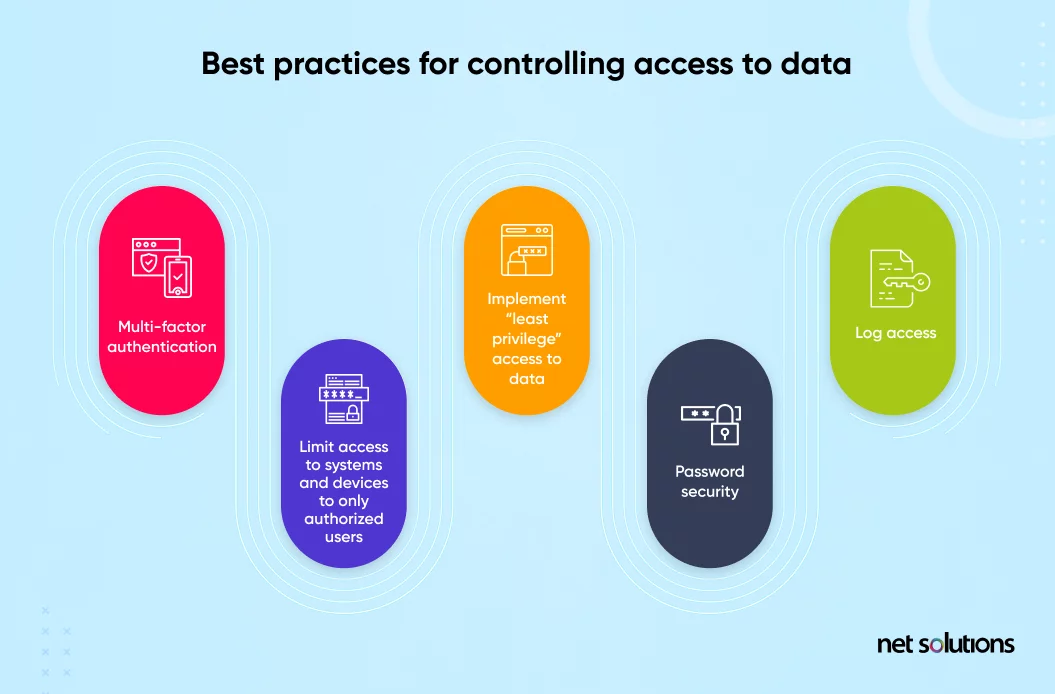
Navigating the Critical Landscape of Healthcare Data Security
In the era of digital transformation in healthcare, the importance of robust Healthcare Data Security cannot be overstated. The sensitive nature of health information, coupled with the increasing digitization of patient records and medical processes, makes safeguarding healthcare data a top priority. This article delves into the intricacies of Healthcare Data Security, examining its significance, challenges, and the measures in place to ensure the confidentiality, integrity, and availability of critical health data.
The Significance of Healthcare Data Security
Healthcare Data Security is paramount in safeguarding patient information, maintaining trust, and ensuring the smooth functioning of healthcare systems. As healthcare organizations transition to electronic health records (EHRs) and embrace interconnected systems, the need to protect sensitive health data from unauthorized access, breaches, and cyber threats becomes even more critical. Patients entrust their most private information to healthcare providers, emphasizing the ethical and legal obligation to prioritize data security.
Challenges in the Digital Age
The digitalization of healthcare processes brings forth a myriad of challenges for data security. Cybersecurity threats, including ransomware attacks and data breaches, pose significant risks to the confidentiality and integrity of healthcare data. The interconnectedness of healthcare systems also increases the potential attack surface, necessitating proactive measures to identify vulnerabilities, implement safeguards, and respond swiftly to emerging threats.
Regulatory Frameworks and Compliance
In response to the growing importance of Healthcare Data Security, regulatory frameworks such as the Health Insurance Portability and Accountability Act (HIPAA) in the United States have been established. These frameworks set forth standards and requirements for safeguarding protected health information (PHI). Compliance with such regulations is not only a legal obligation but also a means of ensuring that healthcare organizations adhere to industry best practices in data security.
Encryption and Secure Communication
To fortify Healthcare Data Security, encryption plays a pivotal role. Encrypting data in transit and at rest helps protect it from unauthorized access. Secure communication channels, including encrypted emails and secure messaging platforms, are essential in safeguarding the transmission of sensitive health information. These measures mitigate the risks associated with data interception and unauthorized disclosure.
Employee Training and Awareness
Human factors contribute significantly to Healthcare Data Security. Employee training and awareness programs are crucial components of a robust security strategy. Healthcare staff should be well-versed in recognizing phishing attempts, understanding security protocols, and adhering to best practices for safeguarding patient data. A culture of cybersecurity awareness is fundamental in creating a collective responsibility for data protection.
Data Backups and Disaster Recovery
In the event of data breaches or system failures, robust data backup and disaster recovery plans are indispensable. Regularly backing up health data and having contingency plans in place ensure that, in the face of unforeseen events, healthcare organizations can swiftly restore operations and minimize the impact on patient care. These measures contribute to the resilience of healthcare systems in the face of evolving threats.
Emerging Technologies in Healthcare Data Security
As threats evolve, so do the technologies employed in Healthcare Data Security. Artificial intelligence and machine learning are being leveraged to detect anomalies and patterns indicative of potential security breaches. Blockchain technology, known for its immutability and transparency, holds promise in enhancing the integrity and traceability of health data, further fortifying data security measures.
Collaboration and Information Sharing
Collaboration and information sharing within the healthcare industry are essential components of effective Healthcare Data Security. Sharing insights about emerging threats, vulnerabilities, and best practices fosters a collective defense against cyber threats. Collaborative efforts between healthcare organizations, technology vendors, and regulatory bodies contribute to a more resilient and secure healthcare ecosystem.
Continuous Monitoring and Adaptation
Healthcare Data Security is not a one-time effort but an ongoing process of continuous monitoring and adaptation. Regular security assessments, vulnerability scans, and penetration testing are vital for identifying and addressing evolving threats. By staying vigilant and adaptive, healthcare organizations can strengthen their defense mechanisms and stay ahead of potential security risks.
The Future of Healthcare Data Security
As healthcare continues to embrace digital transformation, the future of Healthcare Data Security will be shaped by ongoing advancements in technology, evolving threat landscapes, and the collective commitment to protecting patient information. Proactive measures, innovative solutions, and a collaborative approach will be key in ensuring that healthcare data remains secure, fostering trust and advancing the delivery of quality patient care.
Navigating Healthcare Data Security
To explore the intricate landscape of Healthcare Data Security, visit Healthcare Data Security. In a world where digital health information is central to patient care, the commitment to robust data security is instrumental in maintaining the integrity of healthcare systems and upholding the trust placed in them by patients and stakeholders alike.
